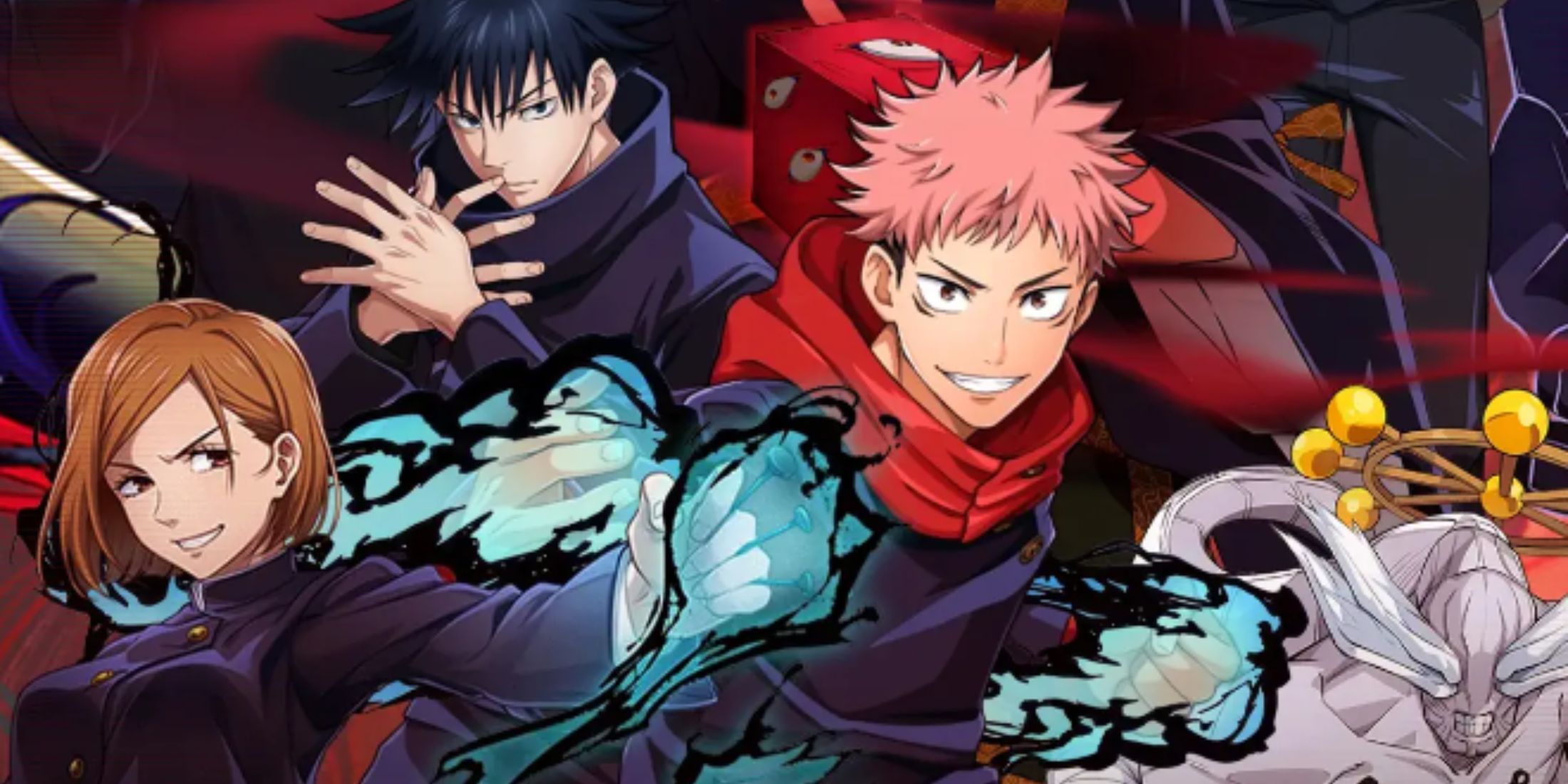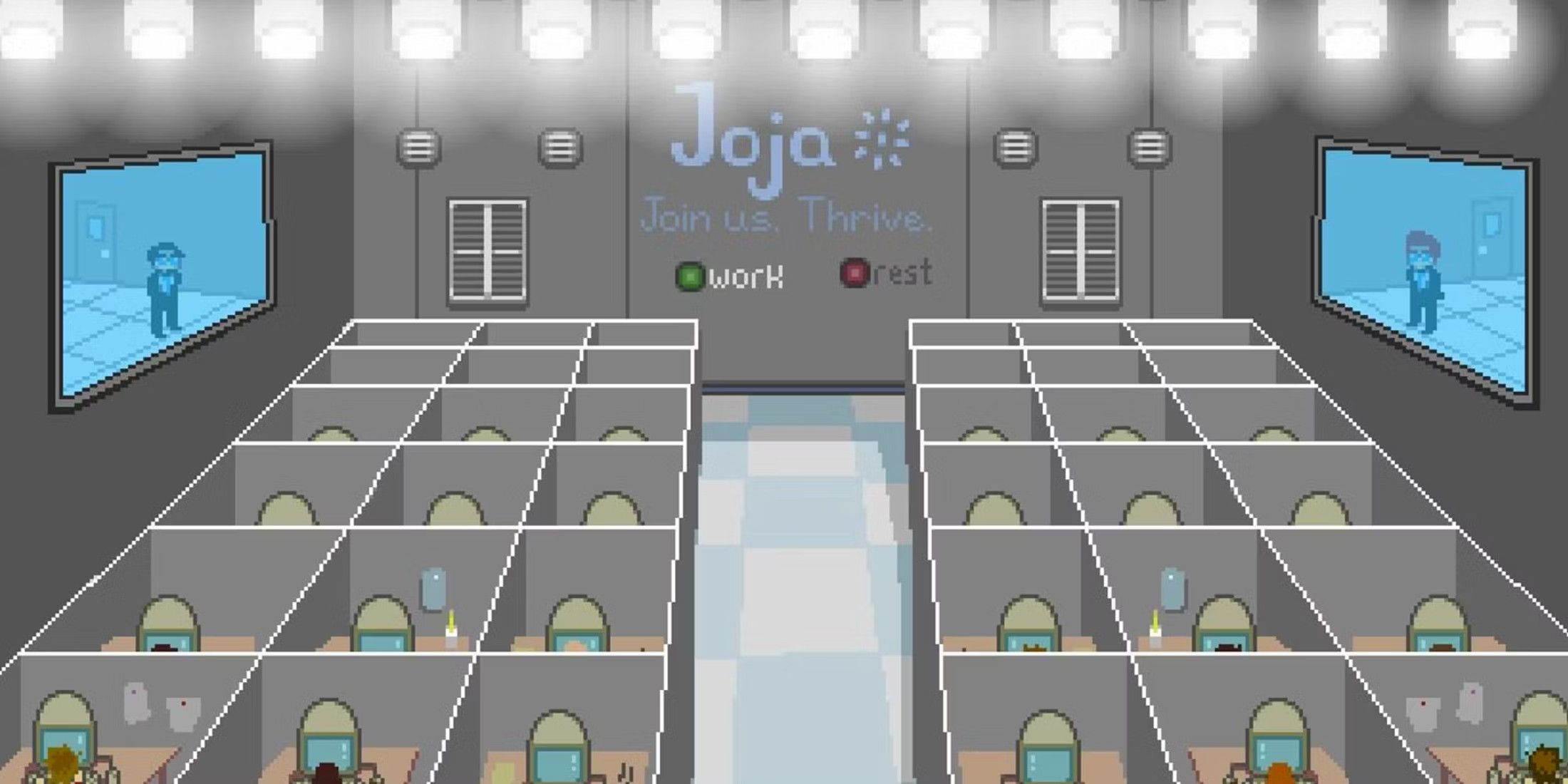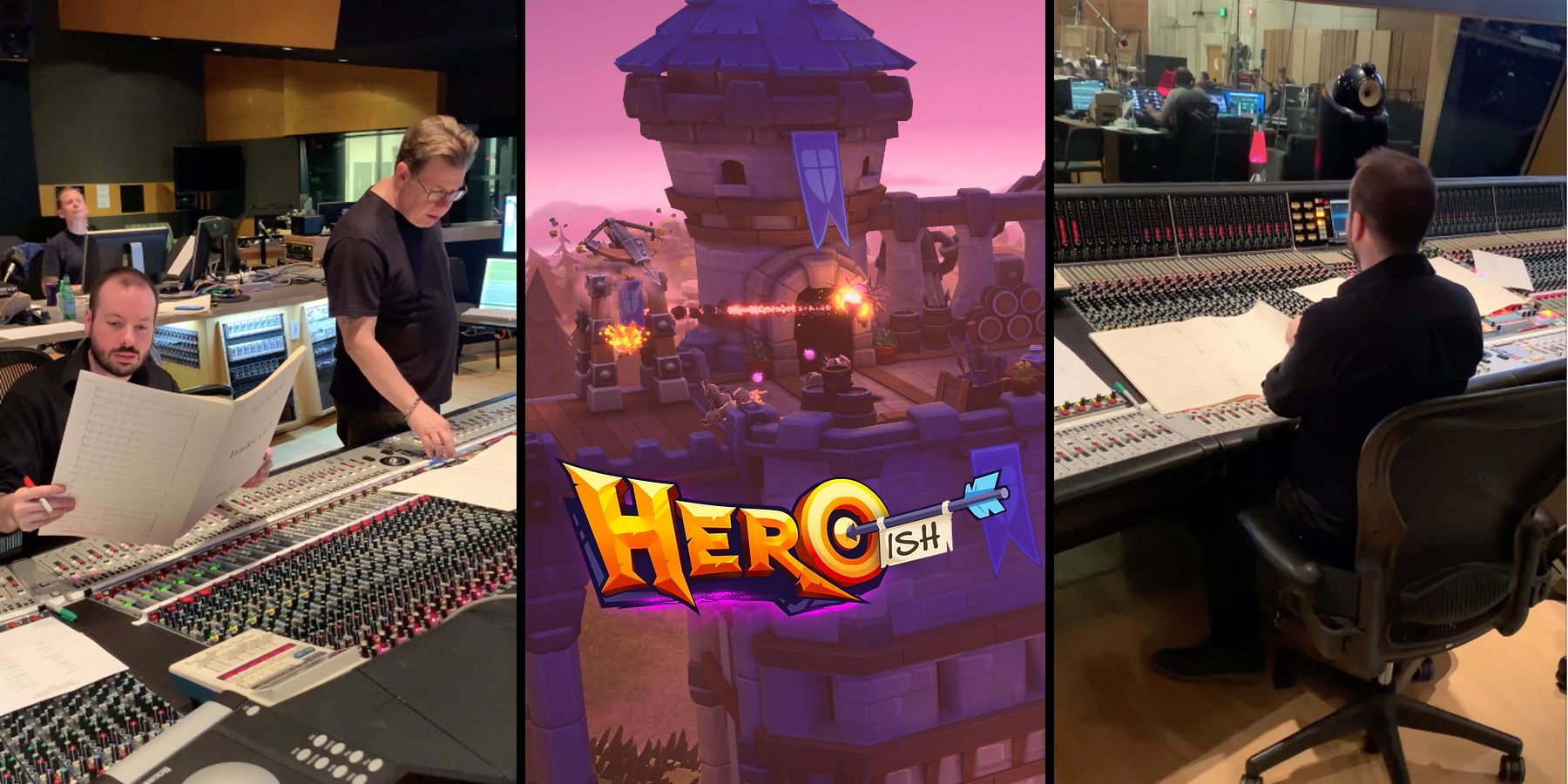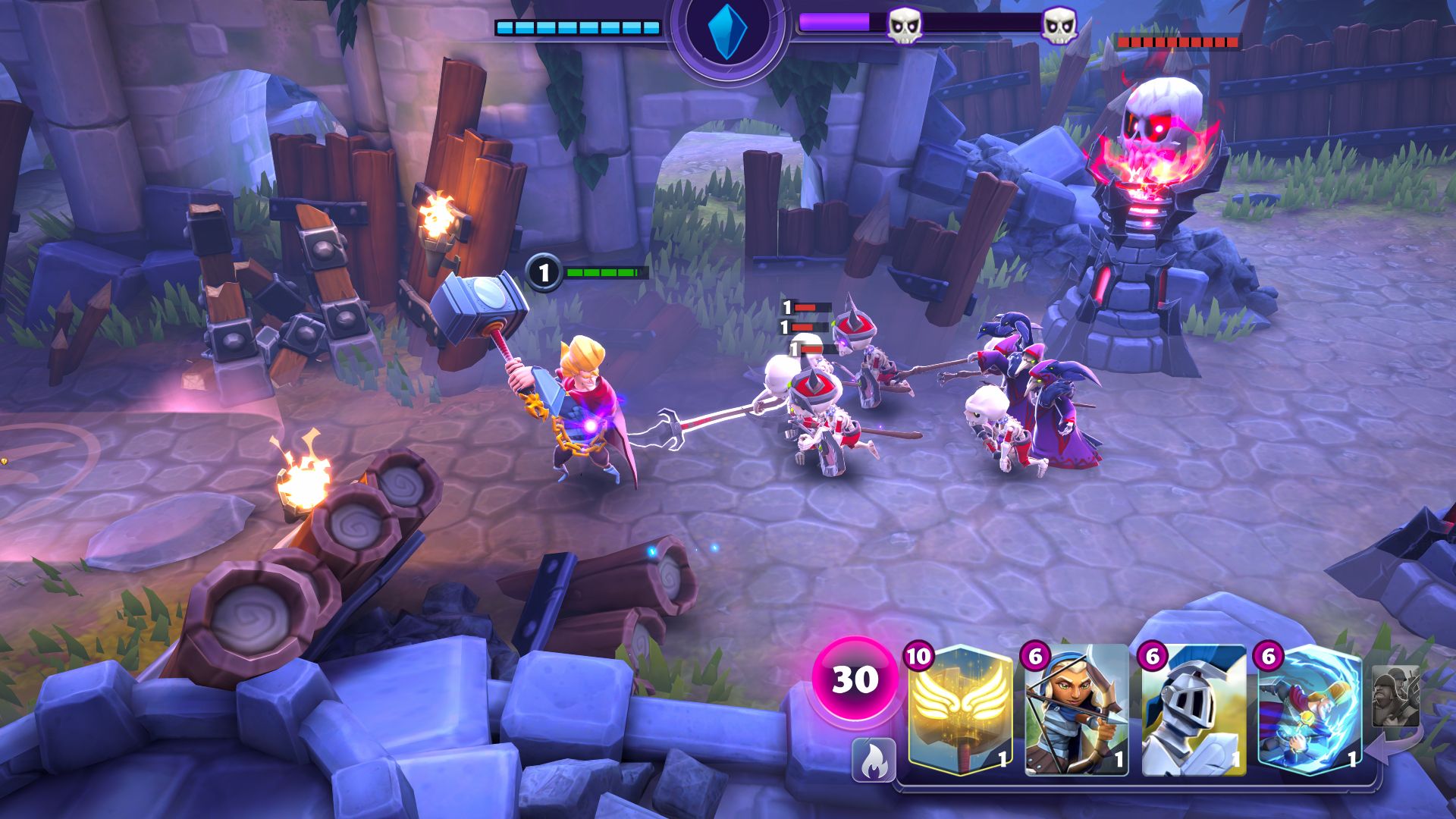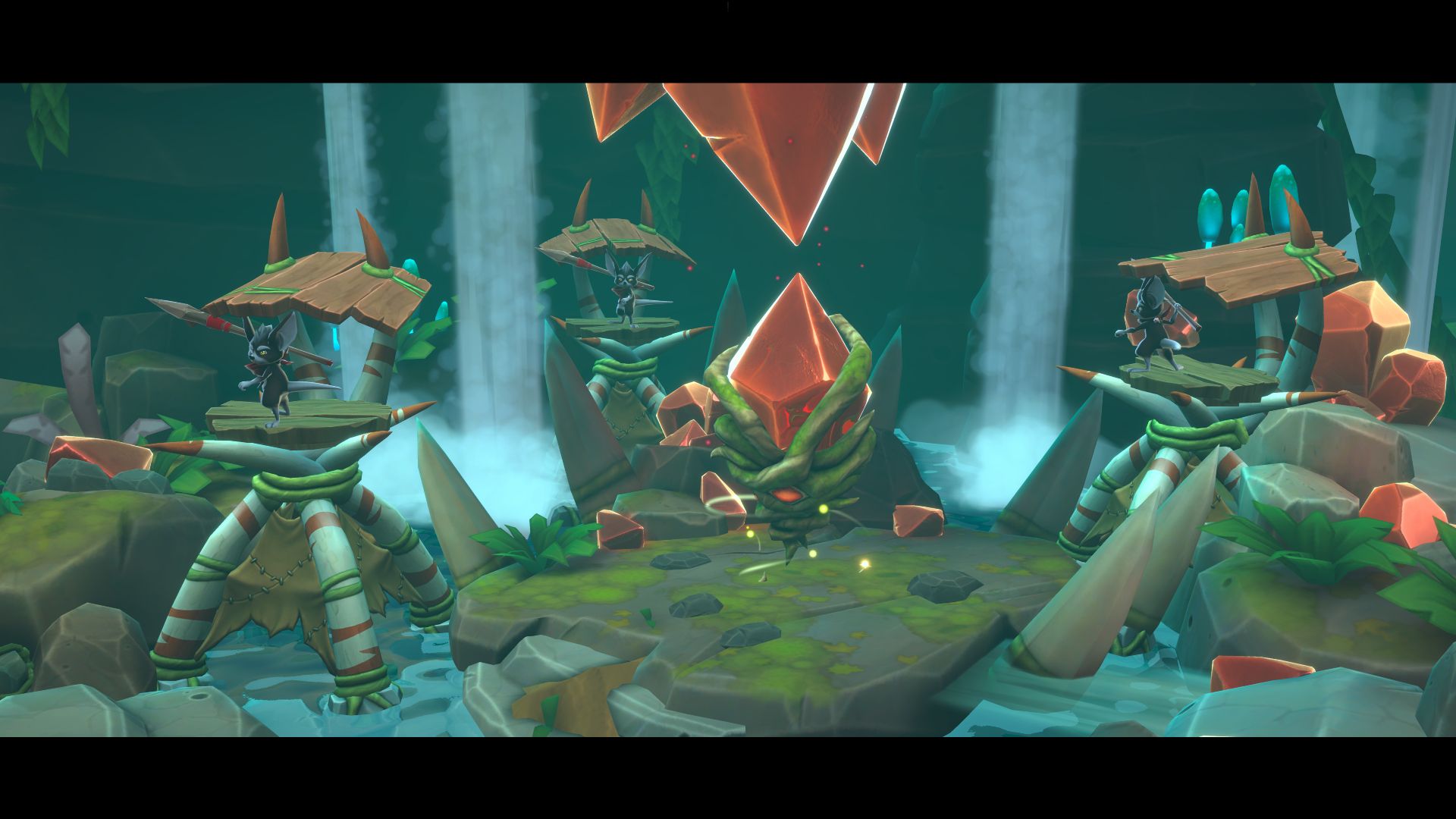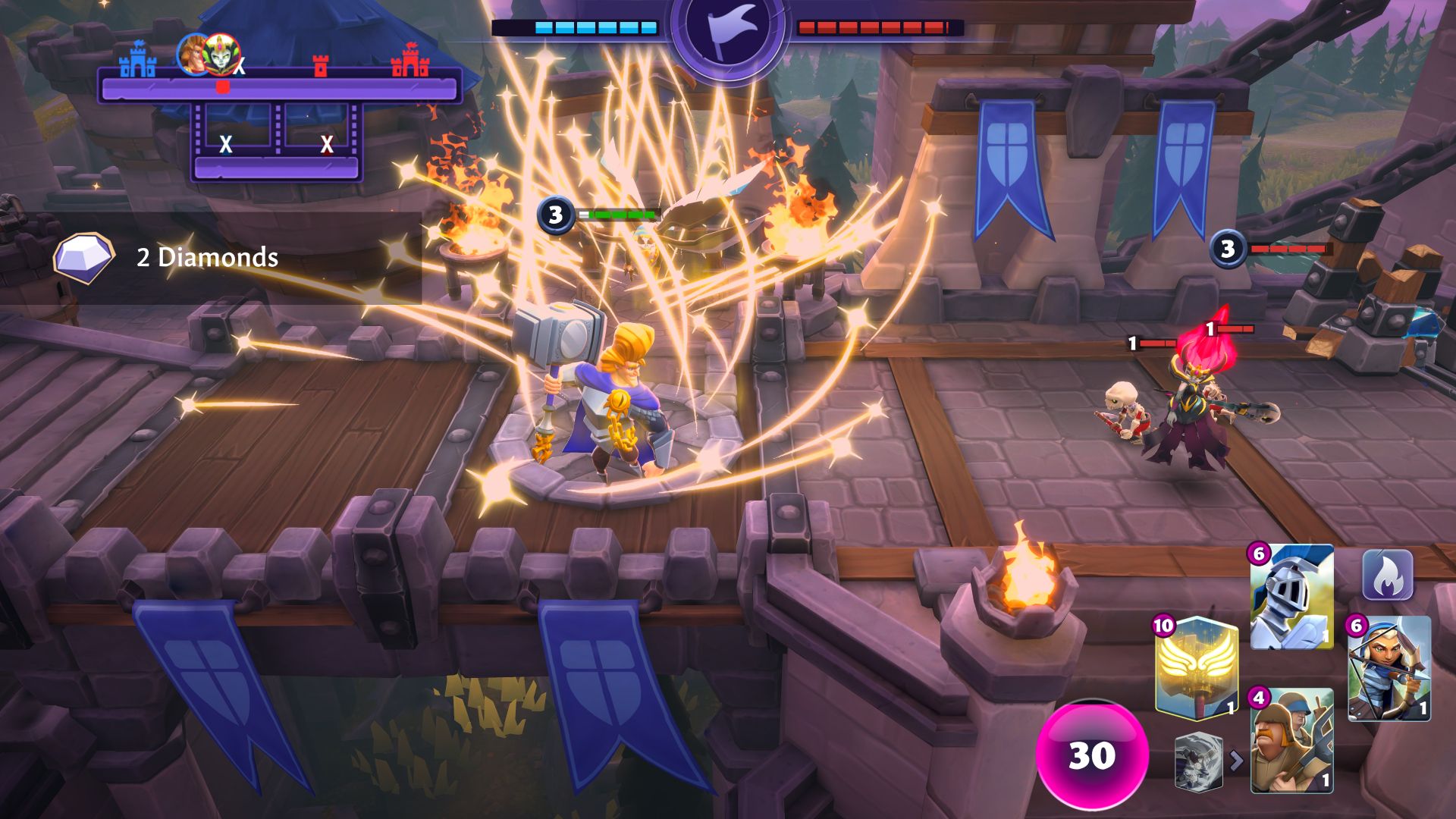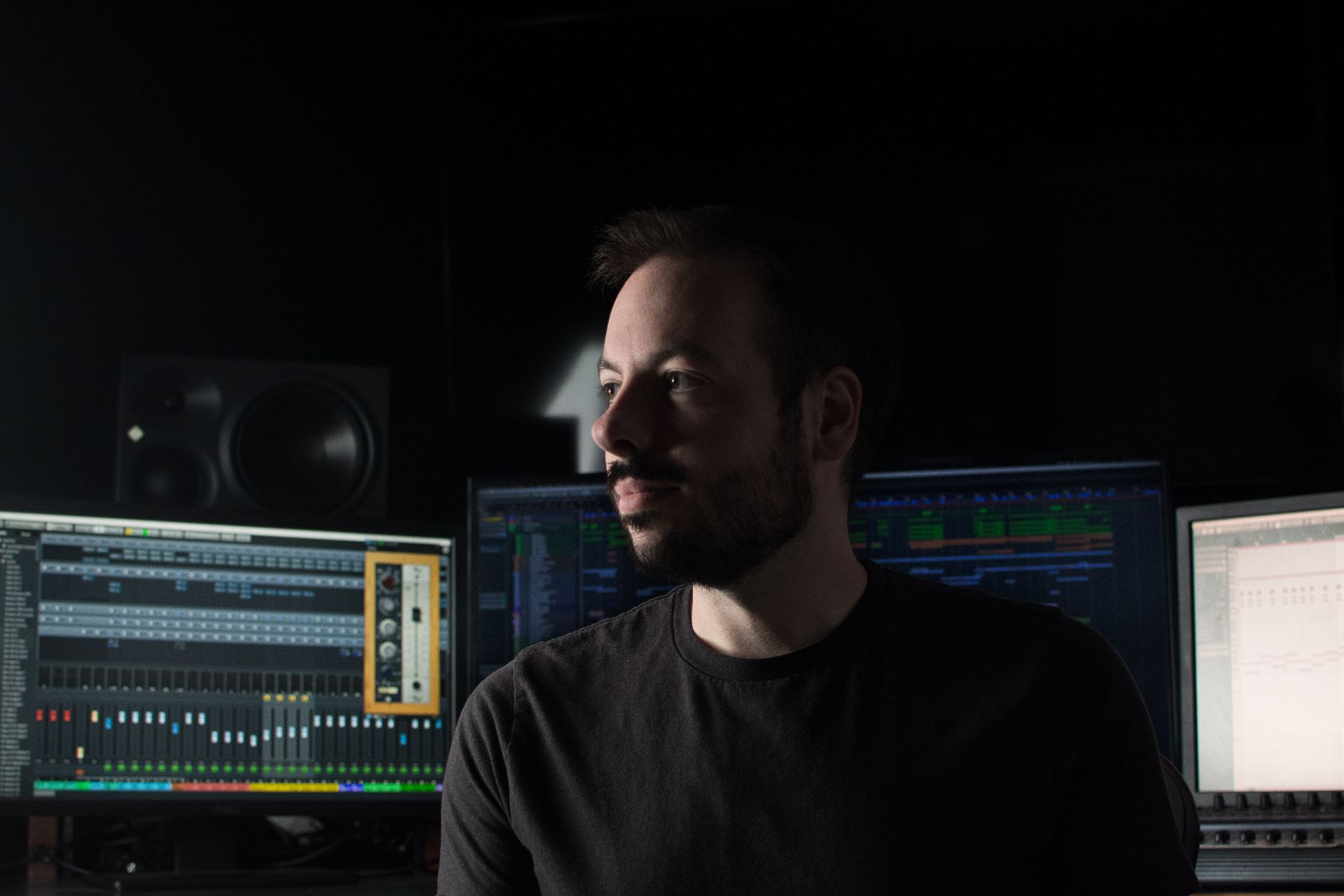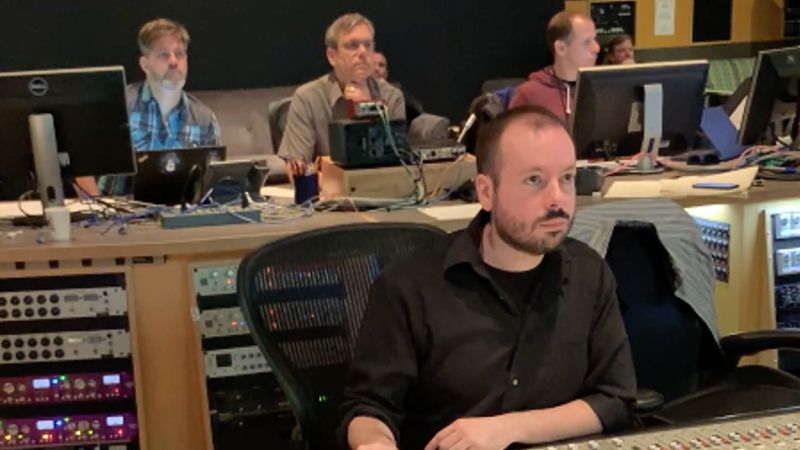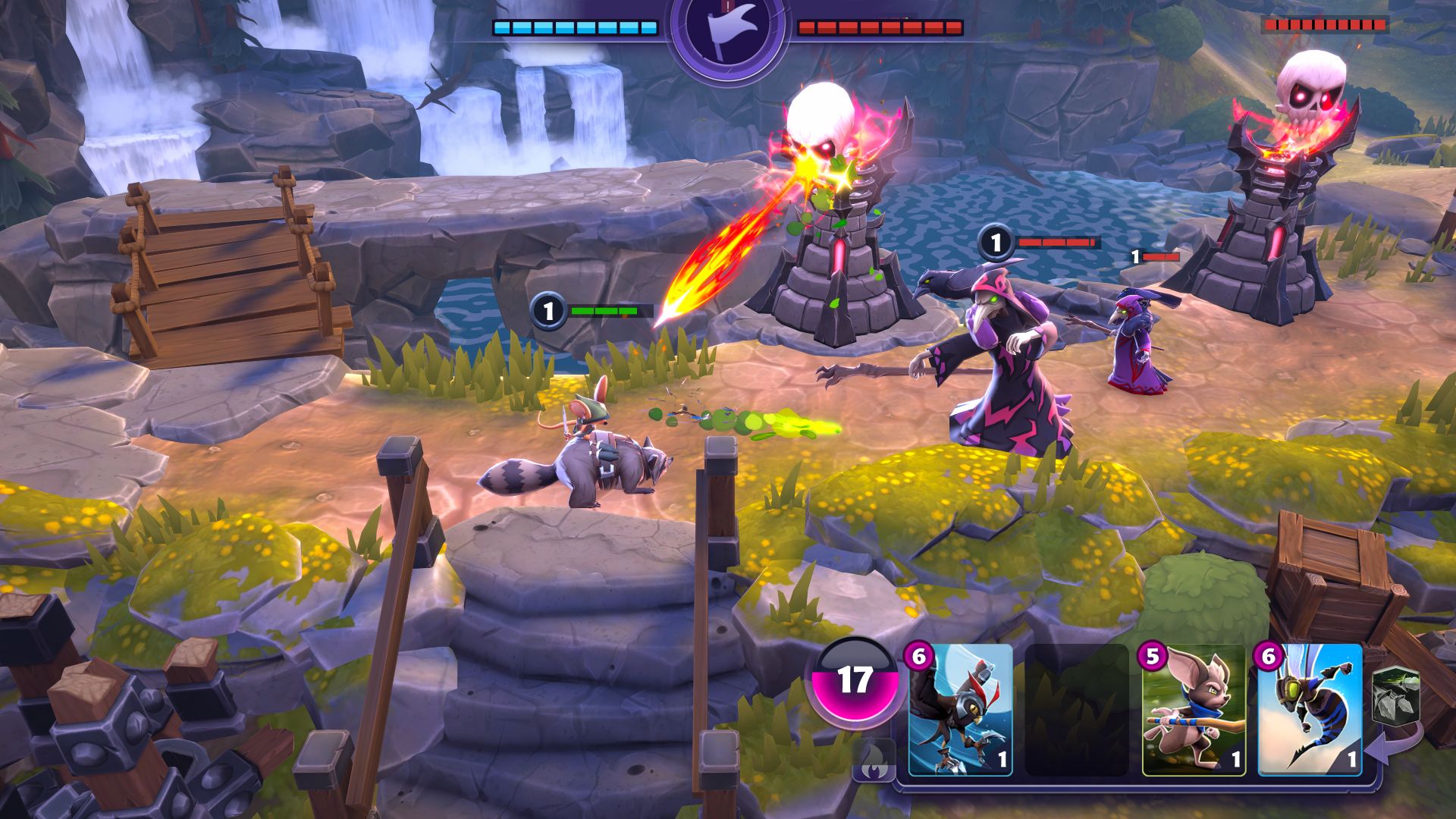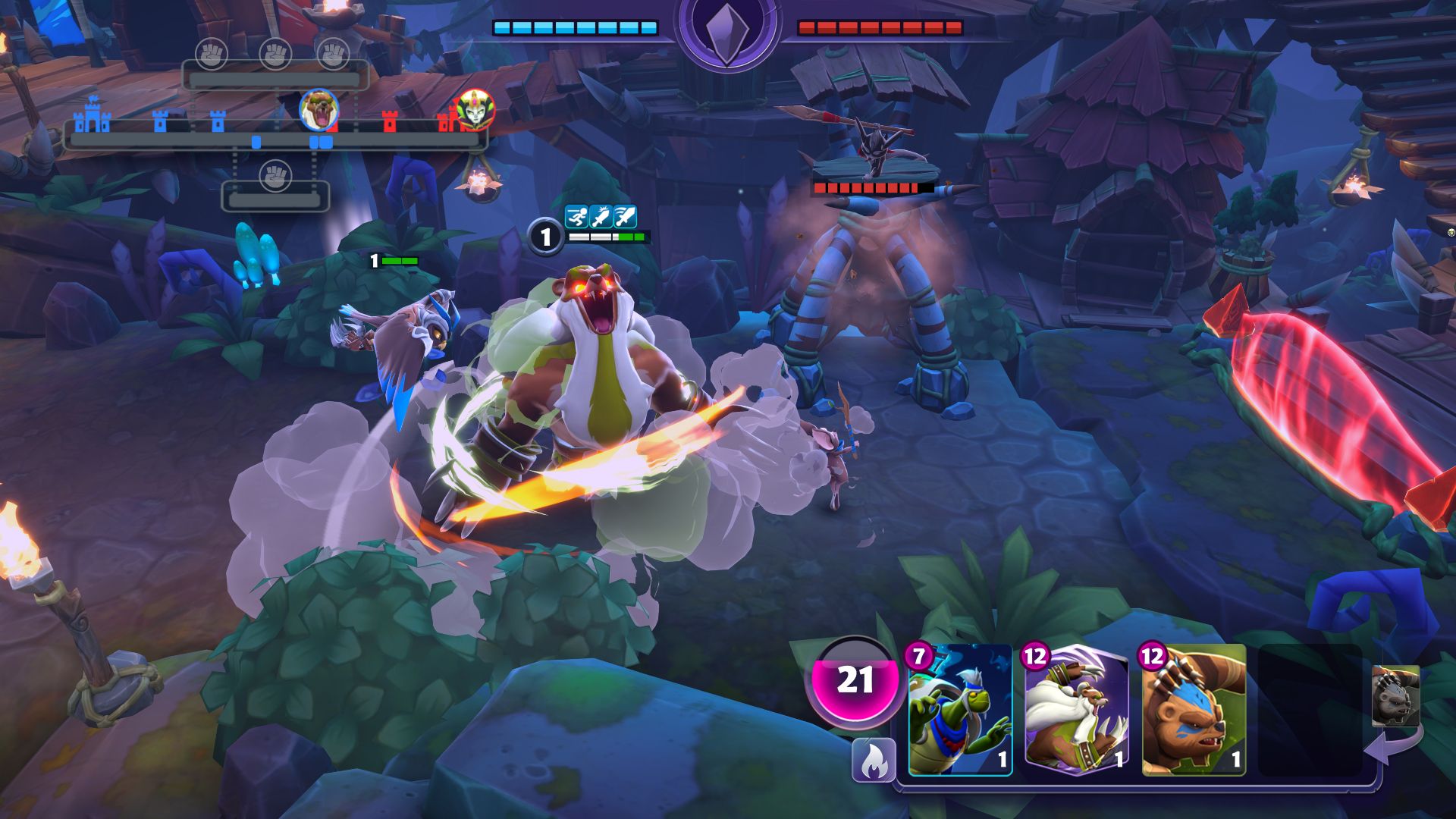Heroish released exclusively for Apple Arcade on July 22, offering players a castle defense experience with the selectable hero element of Overwatch and card-based attacks. Developed by Sunblink Entertainment, a studio opened by Julian Farrior of DragonVale fame, Heroish aims to balance its medieval set dressing with a more modern, irreverent sense of humor. One of the game's six main characters, Lord Marduke, literally runs around the battlefield with an electric guitar as he commands hordes of demons in Heroish's Cursed campaign. This tonal clash required a deft hand when it came to scoring a soundtrack.
Game ZXC spoke to composer Phill Boucher about his work on the Apple Arcade game, as well as his wider experience in the entertainment industry on film and television. Interview has been edited for clarity and brevity.
Q: How did you get into music?
A: That's a big question with a sort of nebulous answer. I've been sort of into music ever since I was a little kid, I used to sing into a dinosaur tape recorder thing with a little microphone that came out of it. But I was playing trumpet in elementary school and doing competitions, I also used to play in the church when I was a kid. Then I sort of realized girls don't care about a guy who plays the trumpet, so I started playing the guitar in late middle school, high school.
That's sort of when everything changed. I was playing in bands, I went to Berklee College of Music, and they did a summer program while I was in high school that I did a couple of years. It just snowballed, one thing led to another and I moved out to Los Angeles. Been doing it ever since.
Q: Would you say guitar is your primary instrument then?
A: Yes-ish. I own a lot of guitars at this point, I don't get to play that much. I'm not the player that I used to be, but I can fumble my way through a lot of different instruments. I probably put my hands on a keyboard more than anything from a writing standpoint. But I'd still say guitar is the instrument I'm best at.
Q: So you do more composing, leading bands than playing yourself at this point?
A: Pretty much everything is composition now. The only time I really play is I do like to play on my own scores, so that's part of why I collect instruments. It gives me an excuse to play. Especially on Heroish, I played a lot of instruments. I played some medieval instruments, acoustic guitars, small drums, and all different things.
Q: Do you do any solo work or is it pretty much exclusively working with bands?
A: Most of what I'm doing is me. The band element comes from if we hire an orchestra. Heroish was a special case where we brought in a lot of soloists. But it wasn't necessarily like "we're in a band writing it together," it was I've written parts and brought musicians in to come play them.
Q: What specifically got you interested in entertainment writing on TV, movies, video games, etc.?
A: That's a good question. I was writing songs in bands in high school, college, and they all tended to not be so-much introspective about my feelings, they were always kind of story-driven. I was doing pseudo-concept albums, everything had a narrative to it. I don't know if that's because I didn't want to talk about myself, or I didn't feel like I had enough to say. I gravitated toward other peoples' stories.
Then I just started to notice the music more in movies when I'd go to the theater. I started to think, "I don't think I can make a living being in a metal band, especially a mediocre metal band, so I'm going to pivot and look more at the film-scoring side of things." I've always loved film music, and I didn't grew up with a classical background, so I didn't think writing for the orchestra was something I would ever be able to do.
Q: Has that lack of a classical background affected your career at all? Or more of a mental roadblock?
A: I think it's much less important than ever to have that background. There's a lot of very talented and successful composers working now who have no background at all with the orchestra. I enjoy that kind of stuff, so I spent a long time studying and writing to get my chops up, and it has worked out because I've gotten a lot of opportunities to write for the orchestra. Every time I do I feel like I'm learning, growing, and getting better, but when it comes down to it my sensibilities still come from more of a rock background.
Q: Have any of the experiences you've done really stood out?
A: Well, I'll never forget the first time I was in front of an orchestra playing my own music, which was for Fortnite. They hired me to write 10 minutes of music or something, but it was terrifying. I'd been an additional composer on Pirates of the Caribbean and other big things, I've been in the room with 100-piece orchestras. But there was always a safeguard since it wasn't my name going on a poster.
This was the first time it was like, oh, I have to decide how many violins we're going to have. What the line-up of the band is. How fast the session goes. If I'm happy with the take. I was also floored because we were in Los Angeles, and there's no better musicians in the world. I've never gone so quickly from nervous anxiety to a feeling of relief as soon as they started playing.
Q: Landing on Fortnite seems like a big deal too, as far as its presence in the gaming space. How did you get involved with Epic Games?
A: Fortnite was interesting. They just messaged me out of the blue. Out of everything I've worked on, most things come out of a mutual connection. It has since turned out I have some mutual connections that work at Epic, but in this case I literally have a contact form on my website and I got an email saying, "Hey we want to talk to you about an upcoming project."
Turns out they found me off IMDb because they were doing a pirate season and I'd worked on the last Pirates of the Caribbean movie. I had done some stuff in games, so they saw this cross-section of "he does some game music, he does pirate stuff, let's talk with him." It just went from there.
Q: How does it feel to keep getting invited back?
A: That's a good way to put it, I do feel like I keep getting invited back. I don't work for the company, and they do use other people to do some things. It's certainly not all me. But it's incredible, it feels like such a wonderful sandbox to play it. They're always pushing the boundary, doing different tie-ins with other IPs and franchises. There's a lot of different things to explore, and it has been a great place to learn and grow.
Q: Are there any particular challenges that come with balancing the music as Fortnite mixes those properties together?
A: Part of the challenge is often just whether we are going to use the themes from the franchise. Sometimes we can, sometimes they don't want to. My challenge to myself is when we do these tie-ins, whether it's a Star Wars season or a Marvel season or a spy season, to somehow still find a through line where it feels like one cohesive game if you step back and listen to all the music. There's something that ties them together.
I don't even know that I could articulate what that is, but they also have their own lore and internal storyline. To justify all those things existing in the same space is a personal challenge I have.
Q: While Fortnite is kind of a special case, would you say there's a big difference between composing for movies/television and video games?
A: In some ways yes, in some ways no. Musically is probably the smallest difference; good music is good music, and every project is different with its own needs and style. Everyone wants their own aesthetic.
Where it's more different is in terms of how the music gets implemented and conceived. When you have a film, you can usually sit down and watch the film with temp music before you get started, so you come into the project seeing where they're at with it - and you see the story from beginning to end. A lot of times, for the games I work on, I'm lucky if I get concept art. It might just be a conversation where they tell me the general tone.
There's a game I worked on years ago called ReadySet Heroes, and they had this whole thing where there was going to be an ice level and an ice boss, all these different things. So I wrote some music for it, but they didn't have anything, and at the end I think they wound up scrapping most of that.
These things are so fluid, storylines will change drastically because they have the beginning of the game figured out, but they don't always know where they're going with it. Or, because there are no actors really involved, they can wildly change something at the last minute that affects everything. You just have to roll with it. So you write the music differently, I'd say, even if I hope the end result doesn't sound like "game music" or "film music." It should all just be music.
Q: Do you have a preference for the structure of traditional media versus the bit of chaos with games?
A: I'd say the grass is always greener. There are certainly times I'm working on games and I wish I knew how this was going to play out, because I want to do this thing and shape this cue, hit the peak over here. Whereas if you're just doing a loop, you don't do that. There's less satisfaction writing the music because I'm writing medium or high intensity, and then I write a separate loop that does the next part. When you play it in the end you still get that experience, but it's less instant gratification when you're writing it.
On the other hand, there are no restrictions of the cut being here, we're switching even if it's in the middle of a musical phrase. In film, that's just what it is. The structure of the music itself tends to be more musical, for lack of a better term, with loops in games because you can write out the whole phrase. Whether it gets heard that way is another matter, but at least it can be conceived that way.
Q: You talked about personal connections landing you a lot of gigs, is that what happened with Heroish?
A: It was and it wasn't. I got invited to send a demo based on a recommendation from the lead sound designer, who is a friend. But I didn't know anyone at the company. Mark MacBride, who runs a company called Injected Senses with another friend Gary Miranda, said "Phill should at least demo for it, he would be great." But they were also outsourcers, it was one outsourcer recommending another.
Q: Once you did demo for it, did something catch your eye about the game? Did they see something in your work that stood out?
A: I had an initial meeting with Nicky Britt, and we just hit it off. Everything he was saying about the game made a lot of sense, and then I met with more of the designers and found out they were fans of my work on Orcs Must Die! I had used some of that music already when I sent my demo reel along with ReadySet Heroes.
Sometimes when you're putting a reel together, you can just tell it's a good fit. Like I have a lot of stuff in this vein, and so many ideas on where else I want to take it. Other times you get asked to do a project and it's like, I've got two tracks that are really far away from what they want. That doesn't necessarily mean I wouldn't want to do that project, but it means I don't have as much to show. For Heroish, I was like "this is in my wheelhouse, I've done it before, I've got some ideas."
In the end it's very different from what I put on that reel, but it was at least a starting point.
Q: I was going to ask about Orcs Must Die!, actually. They're both fantasy-battlers with more modern sensibilities. How do you differentiate the sound for games that are really similar in genre?
A: Another thing they have in common is they don't take themselves too seriously, right? They also have this metal influence... There's definitely some overlap, but I don't think you would necessarily hear it in the scores. Which is really down to the direction.
For Orcs Must Die!, I came in on the third one, so there was a pretty established palette that was very guitar, drum-driven with some harpsichord, and we expanded it a bit. With Heroish, we came at it from the exact opposite angle. Some metal influences came a little later; they knew they wanted something like that, but it wasn't supposed to be the focus. It was supposed to be on the worldbuilding, medieval elements, and Celtic elements. It was a much broader scale for what they wanted to do, whereas Orcs Must Die! was - I don't want to say every track sounds the same, but the world is more narrowly defined.
Q: You mentioned using medieval instruments. Was that an idea you brought in or did that come with their pitch for a medieval-inspired fantasy world?
A: It was mostly me, they were actually wary because they didn't want it to sound like another high-fantasy, medieval game. I think that's part of where the metal influences came from, I mean they've got a character that wields an electric guitar. They didn't want it to sound like EverQuest, Dungeons and Dragons, or Skyrim. More modern, more fun.
So they were worried about bringing in too many medieval instruments and making it too "authentic," if that makes sense. But we talked about things being gritty and tactile. I love recording myself playing instruments and getting out of the computer to put my hands on the real thing. In that regard, I didn't know how to play these medieval instruments, so I'm not worried about it being authentic even if I start with that sonic basis.
Q: How did you wind up balancing those classical and modern sounds?
A: I think that's it, it wasn't necessarily a conscious decision. I never wrote anything and said, "This sounds too authentic." It was always starting from a more modern place and incorporating those flavors, rather than the other way around.
Q: Were there any particular challenges with this scoring that you haven't encountered before?
A: One of the challenges with this is because we were using more Celtic and medieval instruments, they all have limited ranges and keys they can play in. While I wasn't worried about trying to write something authentic, I had to write something playable on these instruments that felt natural. Certain instruments only play in certain keys.
This guy Eric Rigler, who played the uilleann pipes - like Irish bagpipes - he sent over this three-page PDF saying "here are the different keys this instrument can and can't play, and when you play in this key once you get above this note it starts to get out of tune." He sent it farther along in the process when I had already written a lot of stuff. Thankfully I'd done my own research and was mostly fine, but I think there was literally one note on one track he couldn't play. I changed the melody a little and it was fine.
It was only because I was doing extensive research into that and the pennywhistles and Irish flutes to see what keys work for them... Trying to find ways they can play without it being awkward. I want it to be comfortable.
Q: Is that level of research unusual? Or does that often come with composition?
A: It just depends on what the score is. Often if it's more of a traditional orchestra, unless I'm researching weird extended techniques, there's not much to do there. It's when you start to deal with these instruments that are a little bit outside the traditional realm that I want to do a deep dive so I can do justice to them.
Q: Heroish is also a hero-based game with six main characters to choose from. Did you work to give each character their own sound?
A: Yeah, we had some early conversations about how to accomplish that. There are six heroes divided into three factions, so it was a question of how much instrumentation do we reserve for the heroes versus the faction-at-large. When you're in the Feral campaign versus the Cursed campaign, you want those to also feel different.
For the most part, each of the three factions and campaigns has their own sonic landscape and instrumentation - with some overlap, like there's strings and a bit of orchestra throughout. Then each hero got one instrument that would define them. If you're in the Imperial campaign, you're going to hear Flynn's instrumentation as part of those tracks, which is the orchestral brass. Then if you're in the Cursed campaign, you'll hear some electric guitars for Marduke, some violins for Lavinia.
Then there were some places we could be more specific. If you're on the map, the map will play the instrument of the character you've chosen on the same sort of track. The other place that shows up is if you're doing multiplayer, which was a whole other challenge because you can have four players at a time. Of the six heroes, whoever is on-screen at any given time, you're going to hear their instrumentation. It was a big jigsaw puzzle of how do you cram all these instruments on top of each other and still be able to read them?
Q: Earlier you talked about composing game music that flows. For a mobile game, was there an additional challenge in making it catchy for on-the-go play?
A: Yeah, that was probably more important for this game because we don't have a lot of interactivity with the music. It's pretty simple because the levels go quickly, so we didn't want to overcomplicate things. For the most part, the track just plays and loops. It needs to be interesting in its own right, and we wanted the themes to be recognizable so when you're playing in Imperial, Cursed, or Feral, you notice as they all show up.
The other thing that became important is because they're straight loops, counterintuitively the structure needed to feel a little more random. Normally if you have a piece of music like a pop song, it's verse, chorus, verse, chorus, verse, chorus; you've got some repetition, something to latch onto. The themes are the things you latch onto rather than any repeated sections, because the loop is going to repeat. That repetition comes by virtue of you being in a level for 10 minutes, so you hear that track four times. You feel it in a different way.
Q: The game came out about a month ago, have you followed any feedback? Will you be pulling anything into your next project?
A: I actually haven't heard a ton about it. I'm in touch with the team and I know they're iterating, working on improving things. Other than potentially working with them again... And if we do, I'll take lessons from this game in the way that we worked together onto that project. But there's nothing so defined I can speak to.
Q: Is there anything else you want to add?
A: I think it's pretty special to be doing a mobile game, especially since they're a startup and there's a lot of passion that went into Heroish from everyone on the team. For them to recognize the importance of live music and live musicians - we had a 64-piece orchestra, seven soloists - all of this elevated the project and score, making it something unique. Especially in the mobile game space.
Not every company would do that, and not every game would warrant it. This was such a wide canvas, anything I wanted to go in and do, they were up for. It was a fantastic experience.
[END]
Heroish is available now through Apple Arcade.

